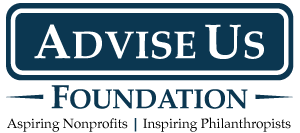Donors give to charity because it “feels good” to give. Usually donors feel good when they believe their contribution “makes a difference.” I know that makes me feel good!
But how do you know if your donation makes a difference?
There are a number of charity metrics – including defining what success looks like, “on-the-ground” testimonials from those who benefit from donor generosity, and impact reports – that can help donors appreciate how a nonprofit succeeds at its mission. Critically, the process requires organizational management, data collection and analysis, and communicating success with donors. And that costs money. They’re “overhead” costs.
Frequently overhead costs come up when assessing charity “worthiness” – and there’s nothing wrong with that. Nonprofit expenses, including overhead, should be in line with good charitable practices. Inflated administrative salaries do not make charity better. But “normal” administrative costs do make nonprofit organizations better. Administrative and development personnel – paid a fair wage – provide critical nonprofit infrastructure. That infrastructure is critical to achieving charitable missions. Charity overhead matters.
How should we measure overhead? While we often see overhead listed as a percentage of overall expenses, that alone is a poor measure. Measuring overhead requires context. Start-up and smaller charities may have a higher overhead because of their developmental stage. Some charitable missions may require more administration. For example, organizations with a lot of program staff or volunteers may need more human resources administration. On the flip side, larger charities often have economies of scale that permit them to spend less on overhead.
Does that mean that only larger nonprofits can really “make a difference” in their mission? No.
Small- to mid-sized charities often make a great difference – just as larger charities do. Donors weighing the value of charities should look at their mission-based successes in addition to their finances. Those are two parts of the equation. There’s nothing wrong – and quite a bit right – in paying for results that make a difference.
____________
Andrew Hibel serves as President and is the Founder of The Advise Us Fund. He is also Chief Operating Officer and Co-Founder of HigherEdJobs. Andrew holds a B.A. in Economics and a M.Ed. from the University of Illinois, and a J.D. from Indiana University, Indianapolis. He has been a planned giving officer for Penn State University and Advocate Charitable Foundation and served as Director of Gift Planning and Estate Administration for the Jewish Federation of Metropolitan Chicago.
The information in this blog post is general and educational. It is not intended nor should it be construed as legal, tax, investing or financial advice. Individuals should consult with their own advisor about charitable giving arrangements The Advise Us Fund® may describe.

